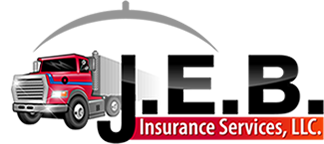Planning to buy a big rig as an owner operator in Georgia?
Congratulations, you’re joining a time-honored profession. Of the nine million people employed in trucking industry jobs, three and one-half million of them are truck drivers. They drive two million trucks. This number is expected to double by the year 2020. That means that the over $200 billion generated in revenues will double. There’s never been a better time to join the trucking industry. However, there are a few things you should know before you hang out your shingle. Shopping for the rig is only one of them; you’ll need commercial truck insurance in Georgia, a commercial driving license, state licenses and a state DOT number, to name a few.
Shopping for a Rig
No one buys a rig unless s/he’s a business owner buying a fleet of trucks. As an commercial truck owner operator, the first consideration will be whether or not you will be running long distances. If you plan to stay within Georgia, a used truck might work out better. You’ll have to factor in mileage and maintenance into the sale as you establish a budget. Before you shop, you’ll need to know:
- How many miles you’ll be driving each week
- Weekly upkeep
- Bridge and loading dock heights
- Budget operating costs such as fuel, engine fluids, maintenance and tires in addition to possible towing and repairs
- Budget monthly or recurring costs such as licensing
- Budget buying costs like the down payment, monthly payments and commercial truck insurance Georgia
- Compare new and used semi truck prices to determine which will best suit your needs
- You’ll need to research warranties, truck histories through Carfax and loan interest rates on each new or used truck you consider
- Compare the electronics package and possible sleeper unit in each truck you consider. You’re going to spend a lot of time in that truck, so you’d better love it!
- Consult Kelley Blue Book and the Owner-Operator Independent Drivers Association for any questions you might not even know to ask
Licensing and Permissions
An owner operator has a CDL and is at least 18 years old. To leave the state of Georgia in your truck, however, you have to be 21 years old. That said, you will know about the medical certificate, gross van weight and the DOT number. You will also know about the load permits for each state you drive through. If you’re coming out of a company as a driver with the intent of becoming your own boss, the company might have handled permits and insurance that you will need to know about. On the other hand, let’s say you work for a company owning a fleet of trucks, and you want a change of scenery. In order to get a CDL, you’ll need to get the physical, pass an eye exam, have a valid Georgia driving license and take a skills test, which will include a driving test in a vehicle comparable to what you will be driving. You’ll need to bone up on the permissions, both state and federal if you drive out of the state.
Commercial Semi Truck and Rig Insurance in Georgia
What the new commercial truck owner operator needs to know before he buys a truck is that once he does, he’s responsible for every last little thing. If he’s hauling a load that goes bad or is damaged in any way, he’s responsible. If he picks up a trailer, and something happens, it’s on him. I’m sure you get the picture. Cohttps://www.jebinsurance.com/category/insurance-state/ga-truck/https://www.jebinsurance.com/category/insurance-state/ga-truck/mmercial truck insurance in Georgia is plainly necessary, but how much? The Federal Motor Carrier Safety Administration has set standards in three areas: liability, cargo and physical damage or comp and collision. Some of the companies who hire you will ask for the minimum in liability, which is $750,000, but the majority will ask for $1 million. This is normal and doesn’t cost that much more.
J.E.B. Insurance Services provides the Georgia coverage you will need for your new truck. Liability covers:
- Bodily Injury
- Property Damage
- Uninsured and Underinsured Motorists
- Personal Injury Protection
- Medical Payment Insurance
- Non-Trucking Liability
- Non-Owned Trailer Liability Coverage
- Hired Auto Liability
- Excess Liability
- General Liability
- Cargo insurance covers whatever damage imaginable can happen to the load you pick up and its trailer. FMCSA has set standards for this, too, with $8,000 being the least coverage, but with $100,000 being the most popular choice. Most companies will ask for this. Cargo insurance from J.E.B. covers contingent, terminal and warehouse coverage.
Physical damage coverage is based on the value of the vehicle and covers pretty much everything else, like:
- Collision Insurance
- Comprehensive Insurance
- Combined Deductible Coverage
- Trailer-Interchange
- Non-Owned Trailer Physical Damage
- GAP Insurance
- Personal Property Insurance
- Diminishing Deductibles
- Rental Reimbursement and Downtime Insurance
- Family Emergency Travel
Owner operators have trusted J.E.B. for 17 years with their Georgia rig and commercial truck insurance needs, but also in Florida, North and South Carolina, Florida, Tennessee and Texas. Be sure to check out the helpful links on the forms page before you contact us with your insurance needs.


